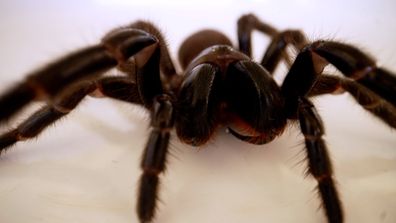Australian biopharmacologist Dr Sam Robinson studies animal and plant toxins with the hope of discovering new, life-changing medicines.
In doing so, he uses himself as a human lab rat, getting stung by dangerous bugs all in the name of science and research.
“Pain is common,” Robinson tells Tom Steinfort.
“The goal here is, if you can find new chemicals that cause pain, these are going to tell you new things about your pain pathways and we can use that information to develop painkillers. And we’ve done that with some of the work that I’ve been doing.”
READ MORE: Kathleen Folbigg’s freedom and the continued fight to exonerate the woman accused of killing her four children
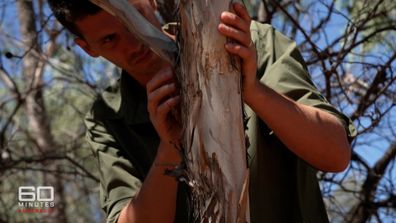
There is a method to the madness Robinson and other scientists are trialling here, as they search for medical miracles.
In the world of pharmacology, venom and toxins are a treasure trove of new possibilities to help create the next generation of game-changing medicines.
And drugs derived from venom may have already saved the life of someone you know.
Emma Wilson knows all about how helpful venom has been to her health, venom that’s come from a creature she labels as “petrifying”.
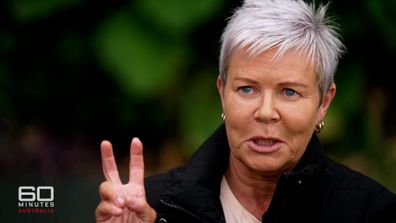
The grandmother of two was preparing for a world body building championship in 2015 when she felt a pain in her chest.
“I was having a heart attack,” Wilson told 60 Minutes.
She credits snake venom for being alive and healthy today, with a class of medication called ACE inhibitors being used to treat high blood pressure and heart failure.
The medication, which is often prescribed following heart attacks, is derived from the venom of the Brazil viper.
“I’m petrified of them!” Emma says of the slithering reptiles.
“But I need to thank them at the end of the day. If it wasn’t for them, technically I wouldn’t be here.”
In Pictures
In pictures: The dangerous bugs helping to save lives
Venomous spiders, snakes and plants are making a difference to medicine.
View Gallery
When it comes to other creepy-crawlies, Professor Glenn King and his research team from the University of Queensland in Fraser Island have discovered a new molecule in the venom of Australia’s notorious funnel-web spider.
The venom could revolutionise the treatment of strokes and heart attacks.
“We found that we could give that compound from the spider up to eight hours after the stroke started and reduce the brain damage by up to two thirds,” Professor Glenn King explained.
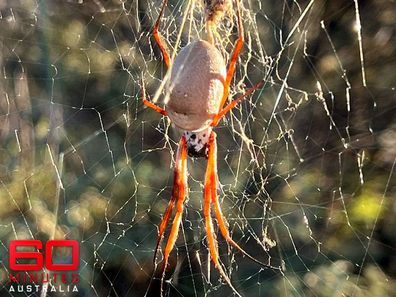
“What we subsequently found is we could also get protection of the heart after a heart attack with the exact same molecule.”
“The idea that we could potentially have discovered a drug in an Australian spider that could save the lives of people around the world is very exciting.”
Human trials will begin next year at the Victor Chang Cardiac Research Institute.
And it’s not just spiders and snakes that can be making a difference to medicine. Plants are also being researched by doctors and scientists too.
In the rainforests of Queensland, Robinson’s colleague Professor Irina Vetter is researching one of the world’s most dangerous plants – the gympie-gympie.
It may look harmless on the outside, but the plant tree is known as the “suicide tree”, rating as the third most painful sting in all of Australia.
But it too is a potential life saver.
The research into the gympie-gympie sting could one day be used to make the critical pain relief drugs for cancer patients undergoing chemotherapy.
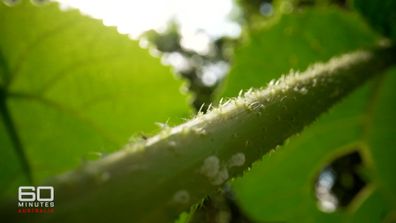
The gympie-gympie activates pain-sensing nerves in ways that have never been seen before – so if the researchers learn how to block it, they may be able to inhibit pain for people with chronic pain conditions, as well as patients undergoing chemotherapy and suffering from cold and temperature hypersensitivity.
“At the moment, we basically have nothing to treat this,” Vetter told 60 Minutes.
“You can either reduce the dose of chemo, that’s obviously not good for cancer, or stop the treatment altogether and that’s very detrimental. Being able to prevent these side effects and treat them effectively is really, really important.”
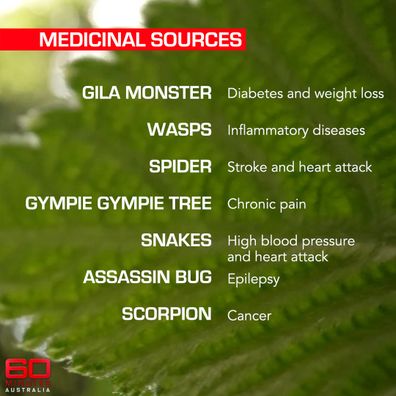
READ MORE: Prince Harry’s quest for revenge
The medical revolution being spearheaded in our own backyard has turned our deadly critters into life-saving saviours.
Robinson thinks the untapped potential of Australia’s incredible biological diversity could just be the future of medicine.
“A lot of people don’t realise most of our drugs are either directly derived or actually inspired from a natural source,” he said.
“So in the long run, hopefully we’re identifying a whole library of new targets to identify whole new classes of drugs.”
Watch the full episode of 60 Minutes on 9Now.
Related Clips

